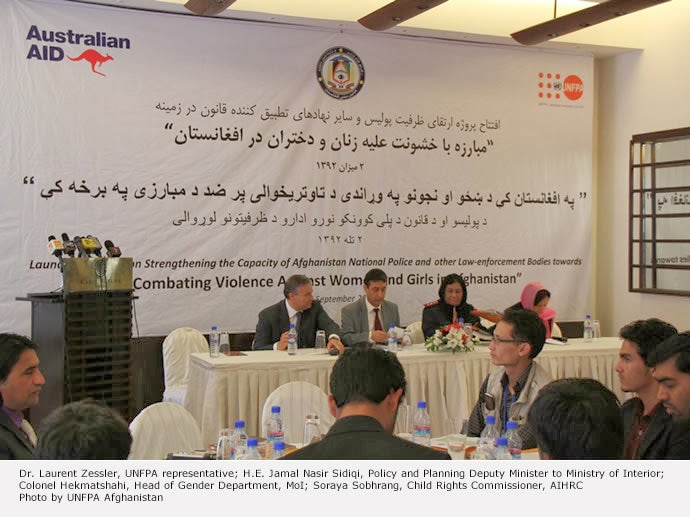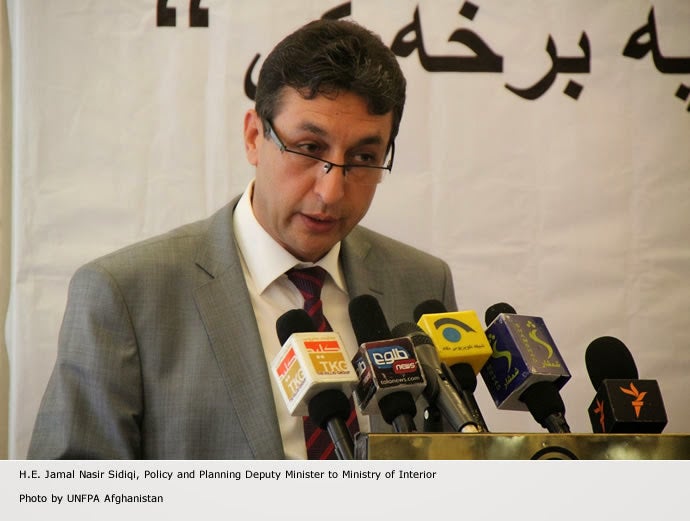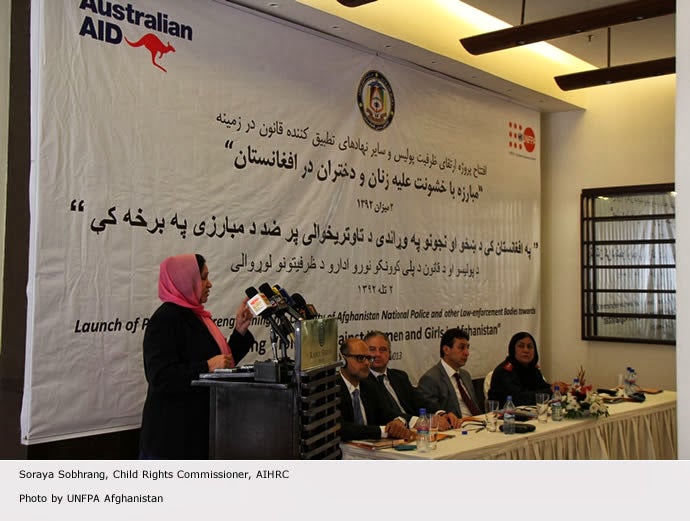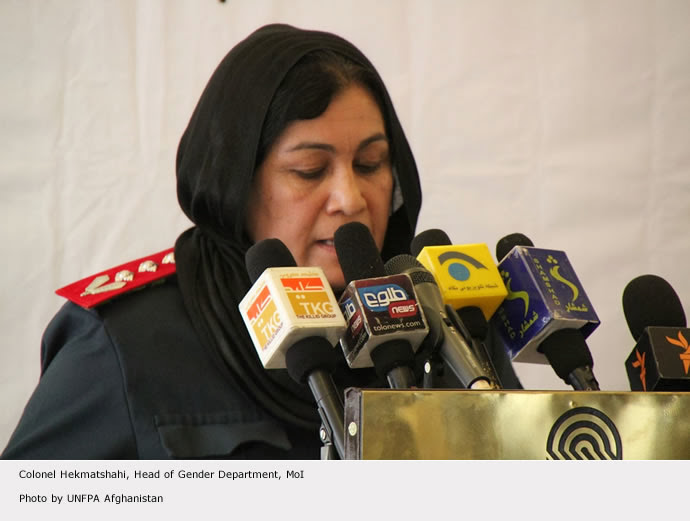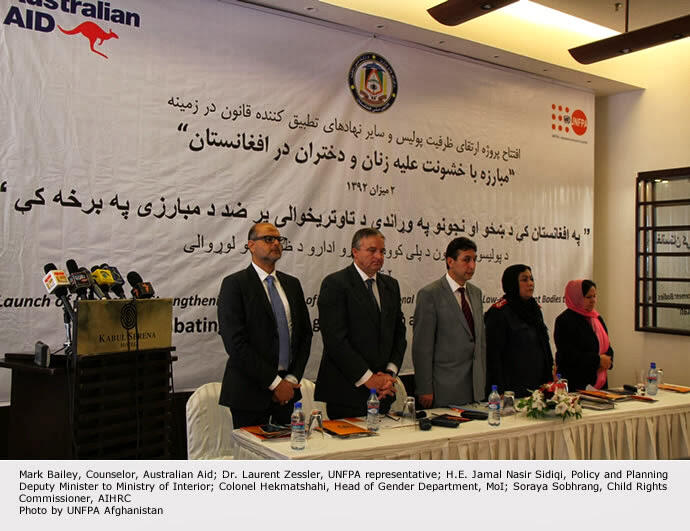Kabul, Afghanistan 24th September 2013, UNFPA and the Ministry of Interior launches a project to 1) strengthen the capacity of the Afghanistan National Police Forces and law enforcement bodies to address cases of violence against women, 2) introduce standard procedures, data collection forms and ethical guidelines, and 3) increase awareness of the public about violence against women and police response.
Violence against women in Afghanistan is widespread and impacts all segments of the Afghan society; however, it is under-reported and has received insufficient attention. This is largely due to cultural constraints, social norms and misinterpreted religious beliefs. Recent reports show that there has been an increase in the number of reported cases of violence against women. Between March 21 and October 21 2012, 4,000 cases of violence against women were recorded by the Afghanistan Independent Human Rights Commission, but these cases were not reported to the police. A 2012 UNAMA report (*) states that only 470 cases of violence against women were registered by the police and prosecutors in the period September 2011 to October 2012. The Report notes that due to the fact that the police could not respond well, register and investigate such cases and that the prosecution of the perpetrators is scarce, people refrain from reporting any such cases.
"Article 22 of the Constitution of the Islamic Republic of Afghanistan states that, "all kinds of discrimination and supremacy is prohibited among the citizens of Afghanistan. All citizens of Afghanistan, men and women, have equal rights and obligations before law". Despite the protection offered by law, women and girls continue to suffer from discrimination and injustice, in the form of; domestic violence, sexual abuse, and limited access to legal protection, health facilities, education, as well as economic and political participation. In light of this, there is a clear need for strong, responsible and accountable law-enforcement bodies to be able to respond to cases of violence against women." Said, H. E. Jamal Nasir Sediqi, deputy minister of policy and planning to Ministry of Interior
To help fill such gaps, this project largely aims to strengthen the capacity of police and other state and non-state actors in the formal judicial system to address violence against women. The activities are planned to be implemented in cooperation with the Ministry of Interior and other stakeholders in three main components:
- Component I's main focus is on capacity building of relevant state institutions, justice sector actors on VAW case management technique, procedures and national legislation, as well as improving attitudes, in relation to VAW cases. Under this component around 1,200 police, 425 judges and prosecutors and 375 government and non-government staff will be trained.
- Component II will introduce standard procedures, data collection forms and ethical guidelines on processing of GBV cases by justice sector stakeholders to ensure transparency and increase the accessibility of services to GBV victims.
- Component III will focus on public awareness campaigns in the country to change attitudes and inform the public of the impacts of violence against women on health, education and economic development of family and the society in general.
"The project is planned for a period of 2 years and will close in 2015. However, UNFPA's efforts to build the capacity of the Afghanistan Institutions will continue. Strengthening the capacity of Afghan institutions is part of UNFPA's core mandate. UNFPA has been providing such support since 2009", said Dr. Laurent Zessler, UNFPA Representative.
The Australian government has provided funding to support project implementation as part of its broader $17.7 million commitment to help prevent and respond to violence against women in Afghanistan.'
(*) Harmful Traditional Practices and Implementation of the Law on Elimination of Violence against Women in Afghanistan. Kabul: Human 1 Rights, United Nations Assistance Mission in Afghanistan and Geneva: Office of the United Nations High Commissioner for Human Rights, 2010, 2011.
Read/Download Press Release:
More photos of the event:
